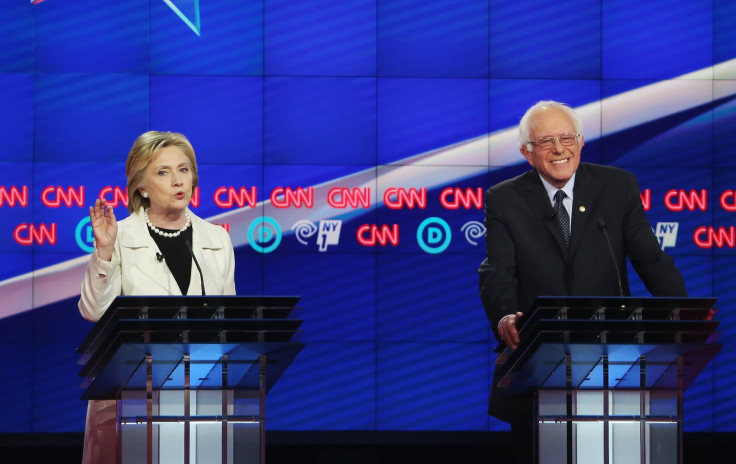On Yik Yak, Debate Causes Millennials To Give Bernie Sanders Highest, Hillary Clinton Lowest Approval Ratings Yet

When White House hopefuls Hillary Clinton and Bernie Sanders stepped onstage Thursday night for the final Democratic debate before the New York presidential primary election, millennials were watching. And as the candidates debated topics such as climate change and gun control, these watchers were also judging.
Users of the social media smartphone application Yik Yak gave Clinton her lowest approval rating of this election cycle, 4.6 percent, according to data from the app’s press unit. At the same time, they gave Sanders his highest approval rating yet, 56.9 percent.
Yik Yak’s user base is dominated by millennials, who typically fall between the ages of 18 and 34. They’ve proven to be pretty politically engaged this year: Yik Yak previously reported that more than 12 percent of all messages posted the night of March 3 were about the Republican debate.
The mentions of the candidates Thursday night were much more even than their approval ratings were. About 44.5 percent of all debate-related messages centered on Clinton, a former U.S. secretary of state, and about 55.5 percent of them centered on Sanders, a U.S. senator from Vermont. Millennials paid attention most when the candidates discussed the economy, foreign policy and the Republican Party.
If you go on the Yik Yak "NYC debate" trending topic, ITS ALL BERNIE _
— Nicole (@ColeLikeNic) April 14, 2016
But if you’ve been monitoring opinion polls, these results shouldn’t come as a surprise: They fell more or less in line with other survey results concerning young people, who have indicated they don’t like the front-runners in either of the major parties, Clinton and Donald Trump. As of last month, more people under 30 had voted for Sanders than for Clinton and Trump combined, according to data from the Center for Information and Research on Civic Learning and Engagement at Tufts University.
Clinton has given Sanders credit for bringing young people to the polls during the presidential primary season, but she also said last week that she felt sorry for millennials who believed campaign rhetoric instead of researching her record. Sanders hit back almost immediately.
“I think that’s a little bit condescending,” Sanders told CNN. “I’ll tell you my experience with young people ... I see them every day because they’re coming out to our rallies. These are young people who want to be involved in shaping the future of this country.”
Nationally, Clinton has the support of about 48 percent of Democrats, while Sanders has the support of around 45 percent of them, according to the HuffPost Pollster.
© Copyright IBTimes 2024. All rights reserved.












